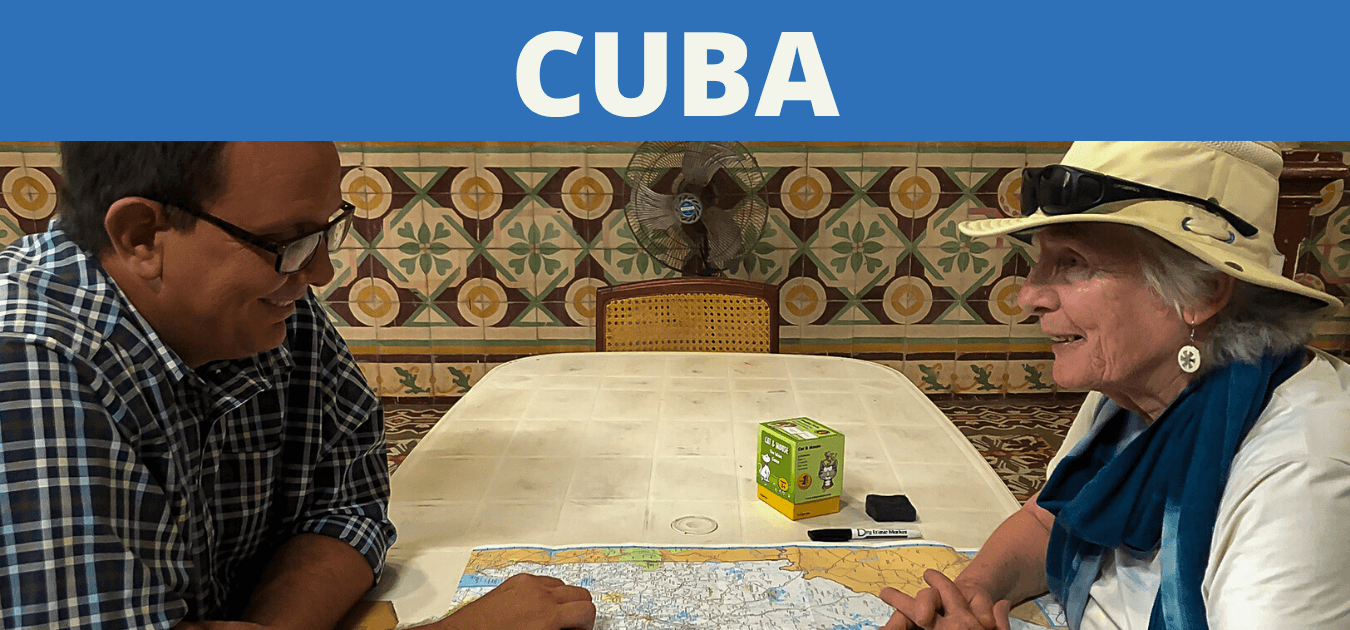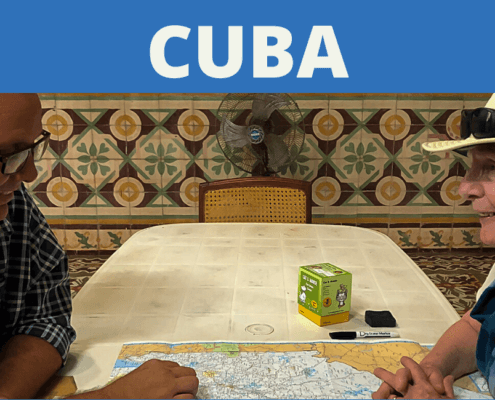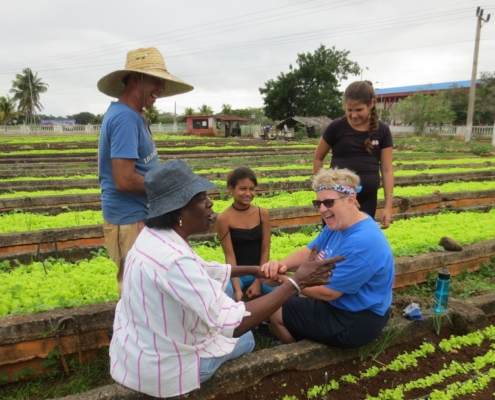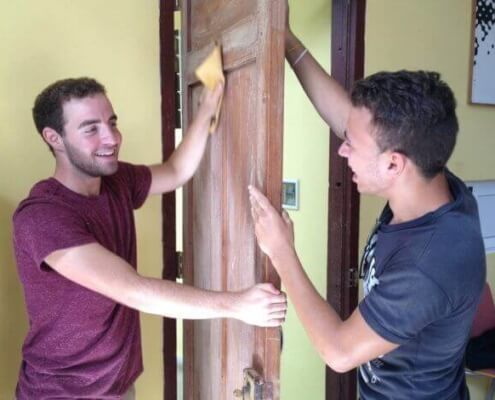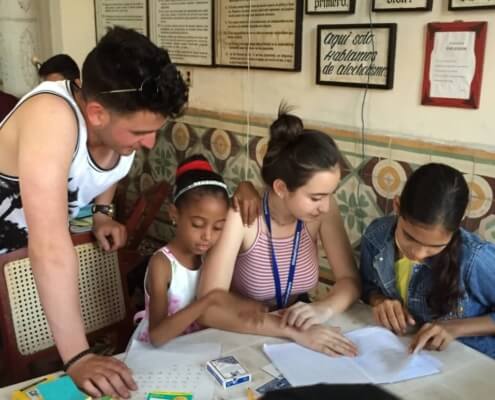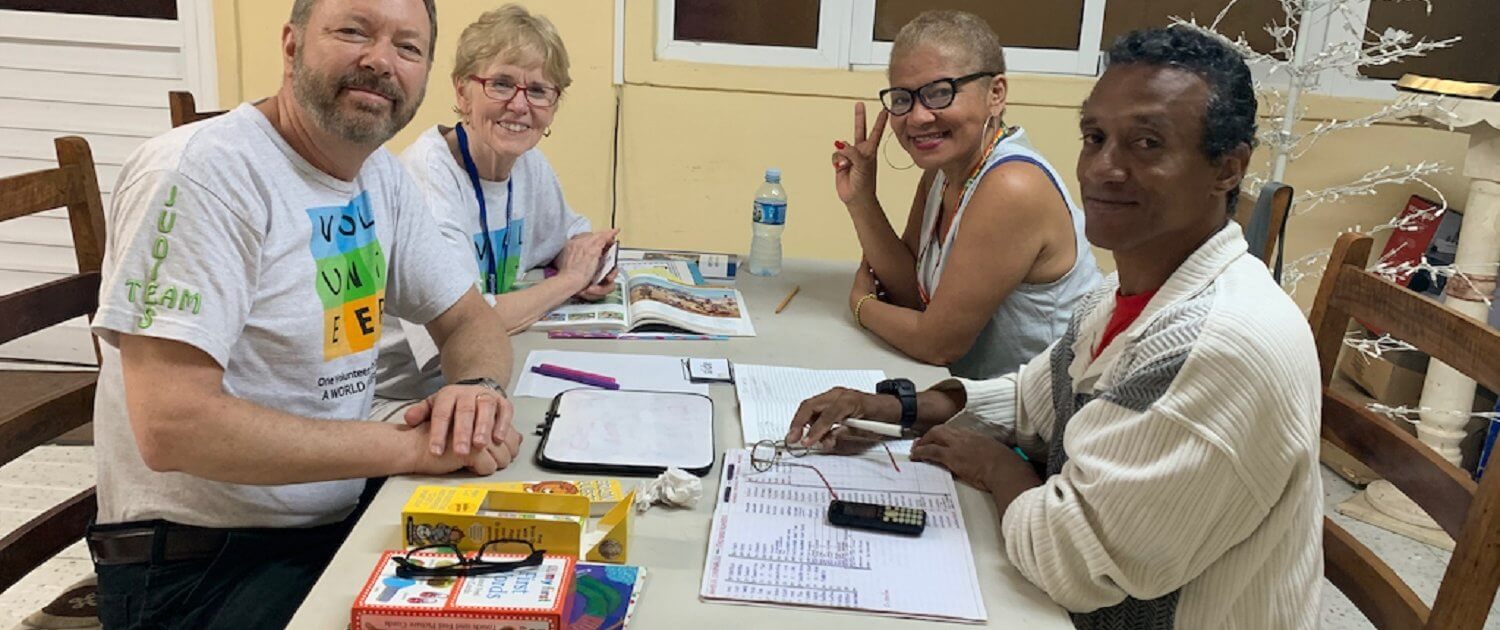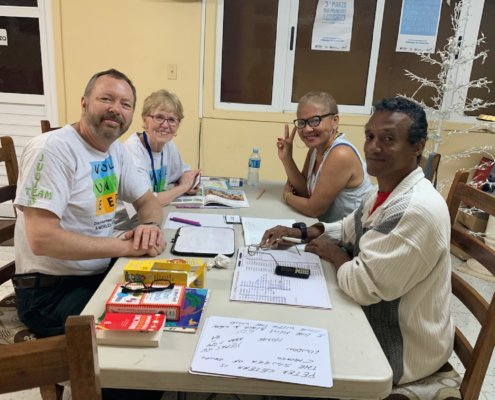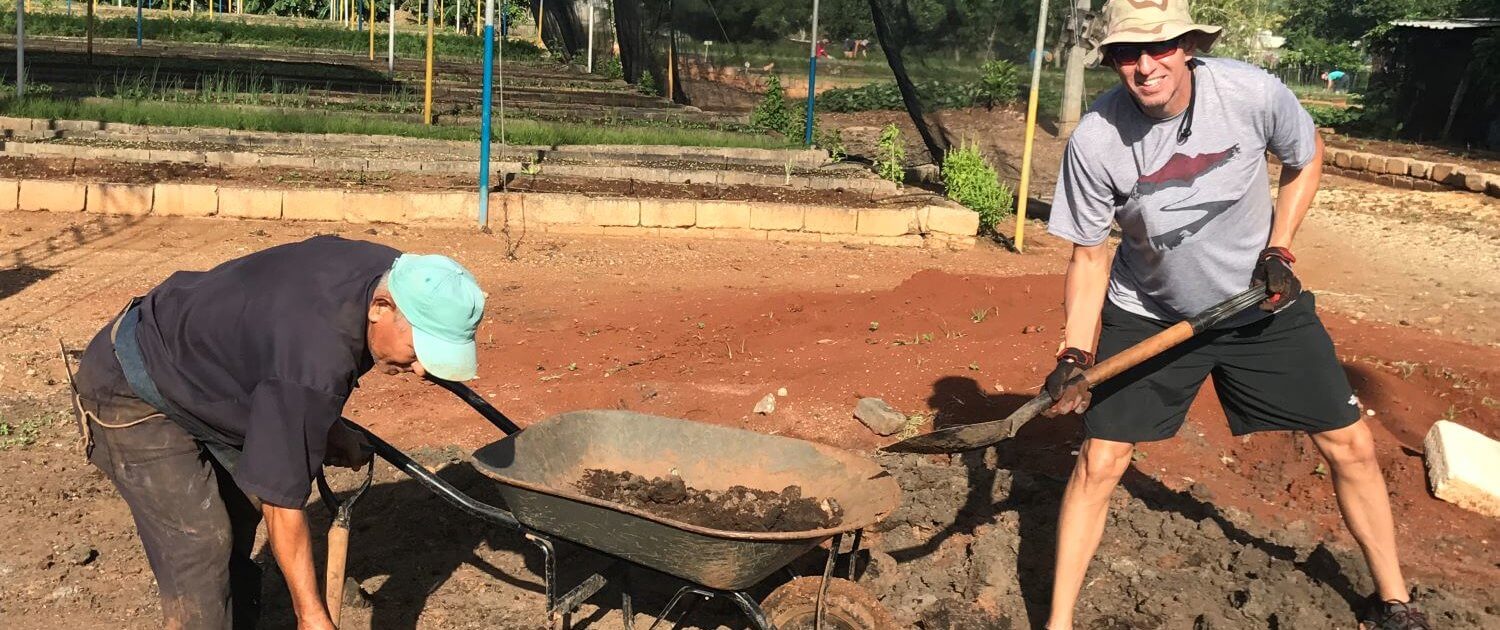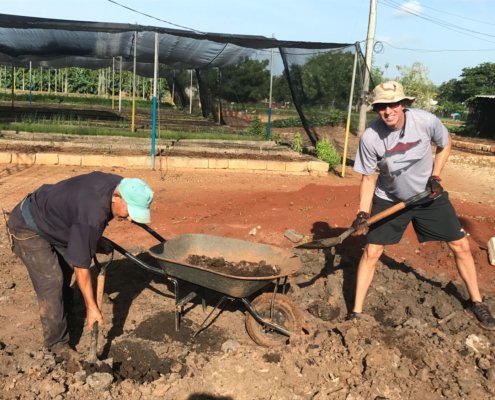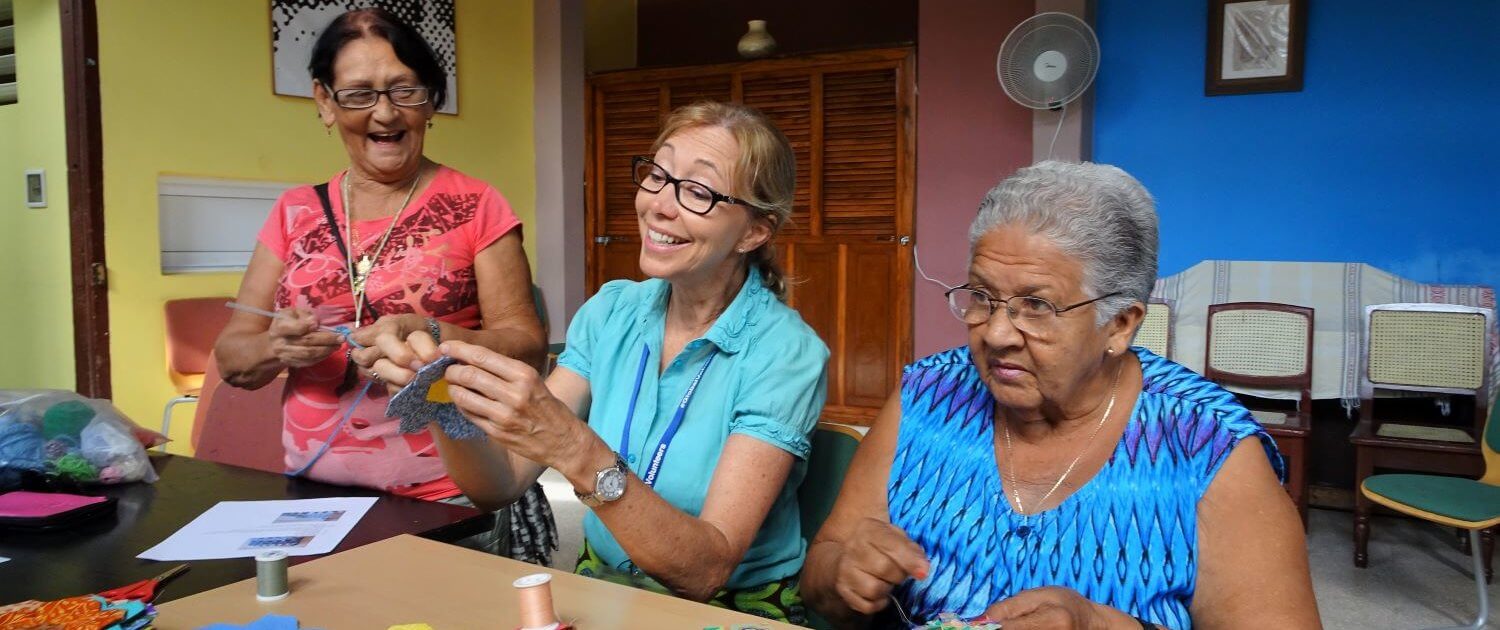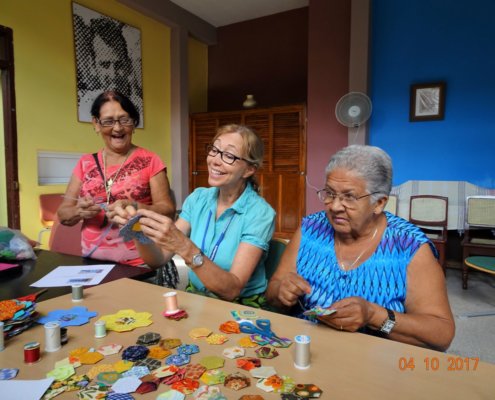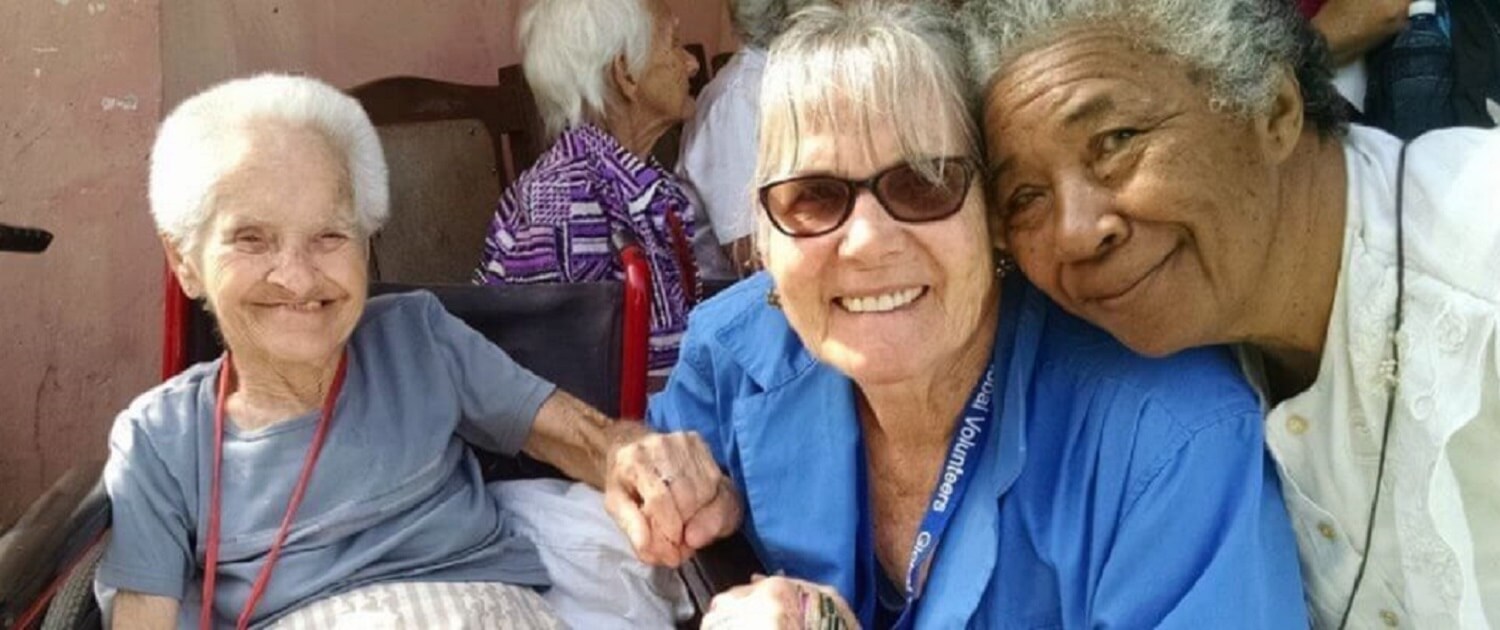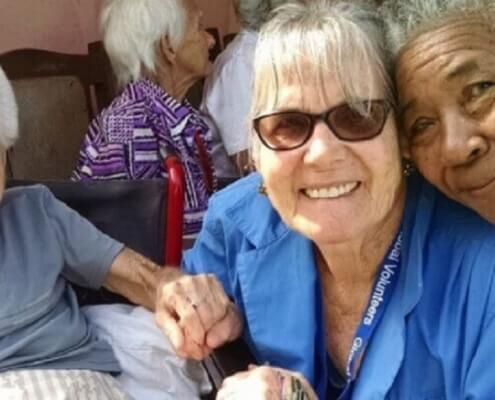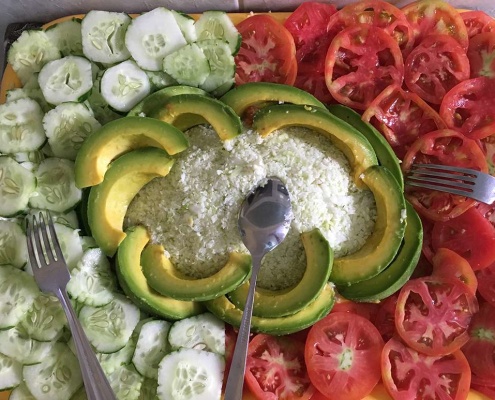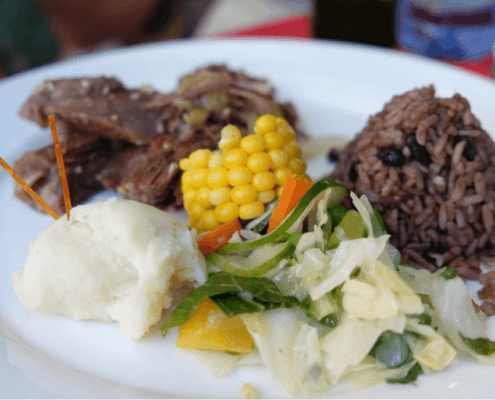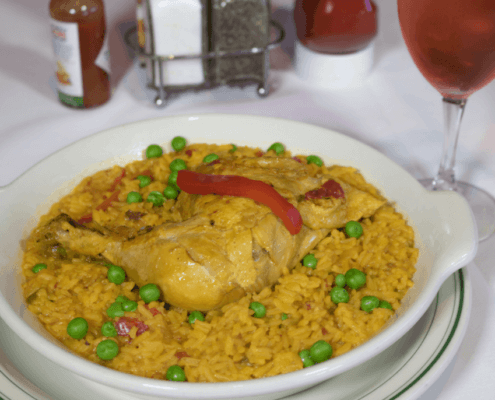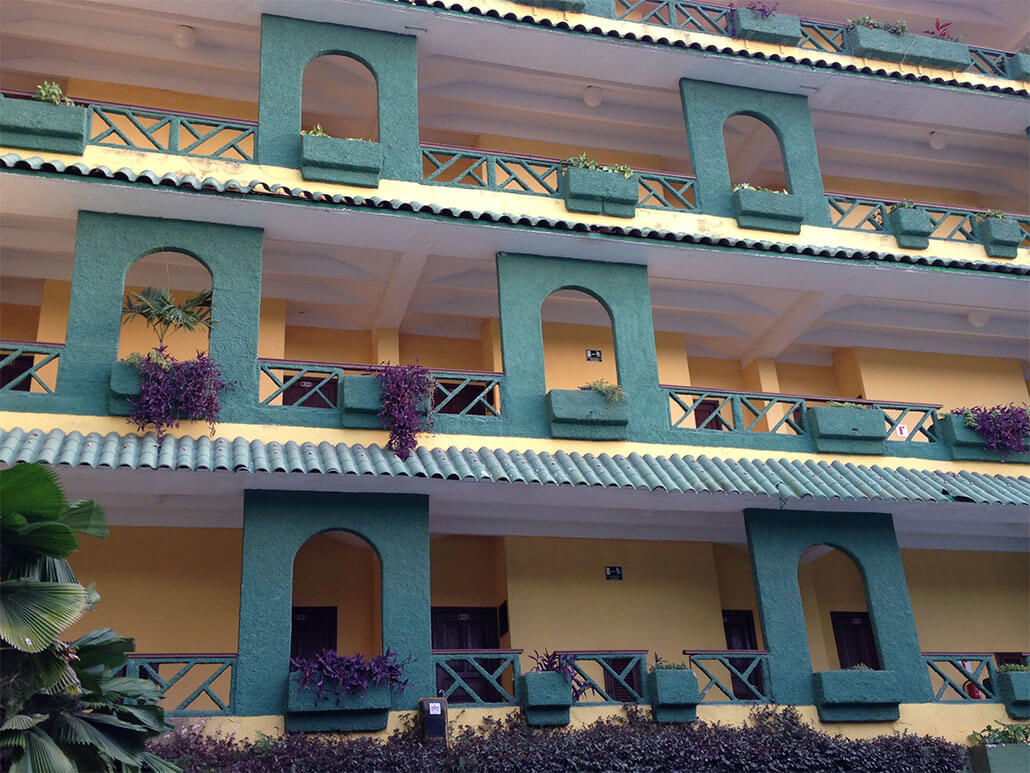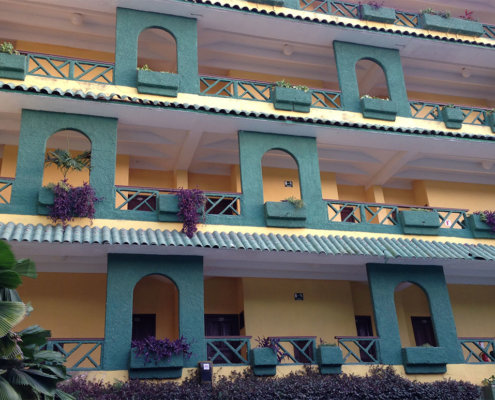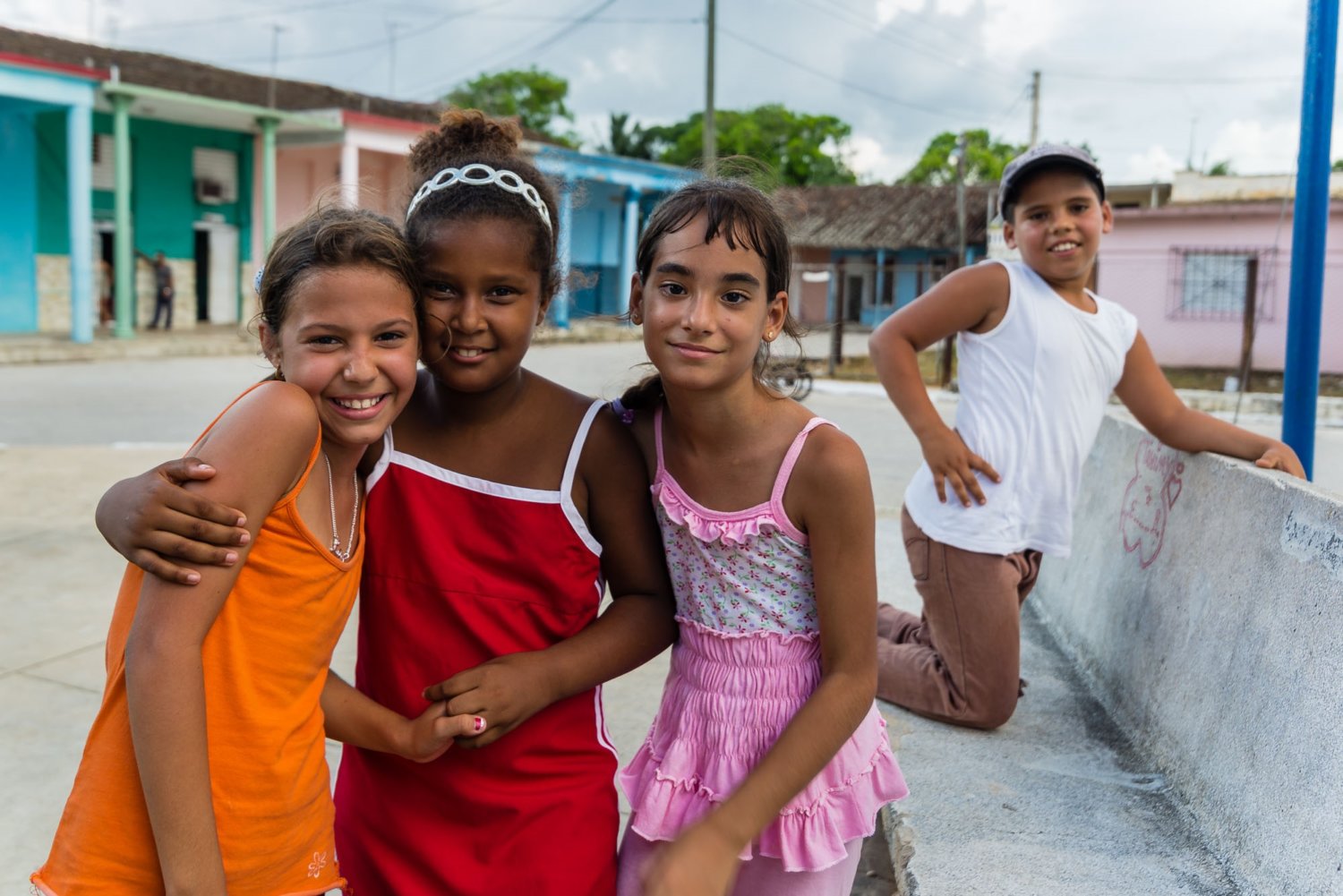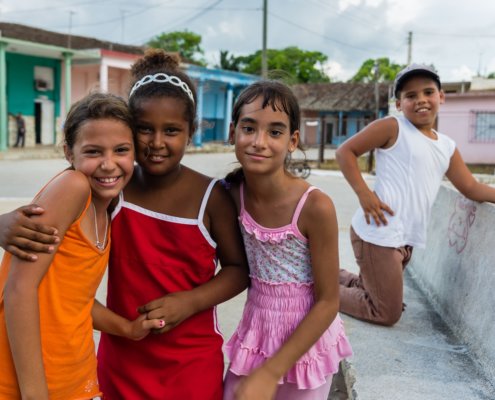Serving in Cuba
A mere 90 miles off the southeastern shore of the United States is the island nation of Cuba, a country of 11 million rightfully proud people and an enormously rich culture. But until recently, it’s been a “forbidden” destination for Americans. Now that’s changed. Americans still aren’t permitted to be tourists, but you can legally support the Cuban people and engage in humanitarian projects. Global Volunteers is committed to improving our relationship with the Cuban people and helping their children thrive. Our Cuban community partners have asked for volunteers to help in several areas.
Havana
- Light labor at the Cuban Council of Churches and light maintenance at the senior center, including painting, sanding, moving furniture, etc.
- Construction work on various buildings, such as churches, community centers, and homes.
- Interact with seniors at the senior center – play bingo and dominoes, paint nails, massage hands, and converse in English.
- Assist with food preparation in the kitchen at the senior center.
- Work alongside local women at the Presbyterian church’s knitting circle.
- Teach conversational English classes in the evenings at the Cuban Council of Churches from 5 to 7 PM.
This is a relatively new experience for Cubans and Americans alike. As such, there are many unknowns, and flexibility is key to every successful Cuba service program. We have adapted some of our standard operating procedures to comply with certain U.S. and Cuban government restrictions. We’ve developed a program to meet those requirements while enabling us to bring people together around service. We know that ordinary people can build bridges of love and understanding through which governments can walk. Our objective is to share who we are as a symbol of the American people’s authentic spirit and solidarity with the Cuban people. Our goal is to support the Cuban people, and to help them with humanitarian projects and civil society as they deem appropriate.
Community Partner & Work Projects
Community leaders in Havana have requested assistance with humanitarian projects to overcome decades of economic isolation and poverty. Our host organization is Coordinación Obrero Estudiantil Bautista de Cuba (Baptist Worker and Student Coordination of Cuba), generally referred to as COEBAC who first invited Global Volunteers to Cuba in 2007. Our primary community partner in Havana is the Council of Churches of Cuba.
English Conversation
English is the international language of commerce, technology, and opportunity. Large numbers of Cubans want to learn English to improve their job opportunities and to connect with the English-speaking world through the internet, tourism, art, music, and other emergent avenues. Native English speakers are a precious resource to learners. You’ll have the opportunity to engage students and adults in conversations in English, in small groups and one-on-one. Some students are beginners, while others are proficient but want to improve their conversational skills. You can be involved in this service project part time and will be assigned to one of the other community projects as well.
General Labor
The condition of a community’s common spaces and public buildings contributes to civil society and its identity and reputation. As in many communities where Global Volunteers serves, you may have the opportunity to work alongside local people on projects that are important to the community, especially as they relate to civil society. If you can swing a hammer or wield a paintbrush, you can be helpful. The work isn’t difficult or strenuous. Moreover, you can work with, and learn from and about new Cuban friends as they learn from and about you. No professional experience is necessary.
Craft Group & Sewing Bee
The Council of Churches of Cuba in Havana facilitate women’s cooperatives which create aprons, clothing, purses, and other items that they sell to help provide for their families. Volunteers who have experience in sewing, crafting, or knitting are needed to work alongside these women for several hours each day to help improve skills and offer ideas about the types of local crafts Americans are most likely to purchase. This is a great opportunity to chat with Cuban women and learn about their culture, history, and daily lives all while working together towards a shared goal.
Programs for the Elderly
The Cuban government has requested the help of the Council of Churches of Cuba to conduct programs for the elderly at senior centers in Havana. There are many elderly and the government is ill-equipped to provide meaningful services or engagement. Volunteers work with the elderly playing games, engaging in conversation, providing basic care, and offering physical therapy.
Service Program Logistics
Global Volunteers’ Cuba Service Programs are led by staff and volunteer team leaders experienced in managing and engaging diverse groups of people. In cooperation with our community partners, your team leader will facilitate your team’s orientation, assist you in becoming fully engaged in the work project, and manage all logistical issues. Your team leader will introduce you to the community, help acclimate you to the local culture, invite you to community events, and engage you in the day-to-day life of the community.
Meals
Cuban cuisine is distinctive – an amalgamation of Spanish, African, French, Portuguese, and Caribbean influences. Traditional Cuban dishes are flavorful, but generally not highly seasoned. Black beans, stews, and meats are the most popular foods. Root vegetables are most often flavored with mojo, a combination of olive oil, lemon juice, onions, garlic, and cumin. Other common dishes in Cuba are ajiaco (a typical meat, garlic, and vegetable stew); fufú (boiled plantains mashed into a paste), which is often eaten alongside meat; empanadas de carne (meat-filled patties); and picadillo (a snack of spiced beef, onion, and tomato). Three meals a day are included in your service program contribution. Breakfast is served at your lodging, lunch is at the work site, and dinner is at local restaurants; your team leader will organize all the logistics. Desserts, soft drinks, and alcoholic beverages are readily available for an additional charge.
Lodging
Volunteers are lodged double occupancy in comfortable casas particulares, which are homes in which Cubans rent out rooms to travelers – giving you an insight to ‘real Cuban’ living. All rooms have private baths, hot water, showers, air conditioning, 110 outlets, and television. The casas particulares found in Havana are located near delightful and entertaining parks, cafés, taverns, and merchants. Many homes are located within walking distance to views of the Caribbean Sea, quaint restaurants, and cultural activities. Standard lodging is double occupancy, but single rooms are available for an additional fee.
Transportation
All in-country transportation is included in your service program contribution. You’ll be transported from the Havana airport on the arrival date to the casas particulares. Transportation to community project sites and people-to-people activities is in cars, buses, or vans. Some meeting points, such as the Council of Churches of Cuba and restaurants for team dinners, are located within short walking distance from the casas. You’ll also be transported to the airport on the last day of the program from the lodging.
Program Mobility
Accurately assess your functional mobility. Our work assignments and partner communities require varying levels of physical stamina and mobility. After you register, you will be asked about your physical capabilities relating to your mobility. Please answer the questions honestly.
Required Mobility for Cuba: Mobile – Walk 1 mile, climb five flights of stairs, walk on uneven terrain, and get on and off buses and trains independently.
Service Program Contribution
Global Volunteer’s service program contribution covers all lodging in double accommodations, three meals a day, in-country team transportation, emergency medical evacuation insurance, all preparatory materials, onsite orientation, a full-time team leader, and administration costs. Single rooms are available for an additional fee. The service program contribution is $2,790 for one week and $3,220 for two weeks. Please ask your volunteer coordinator about student, companion, group, and alumni discounts, as well as referral credits. Airfare and free time activities are your responsibility and are not included in the service program contribution. The service program contribution, airfare and visa expenses are tax-deductible for U.S. taxpayers. You may use Global Volunteer’s online fundraising tool to create a personalized webpage to request partially tax-deductible donations from family and friends to help cover your service program contribution.
“Our Cuban friends say: ‘We’ve never met a stranger,’ and that is exactly how you feel the moment you arrive in the country.”
– Pam Cromer, Cuba Team Leader
Reserve your spot today. Call one of our volunteer coordinators at 800-487-1074 to register.
You CAN make a world of difference!
